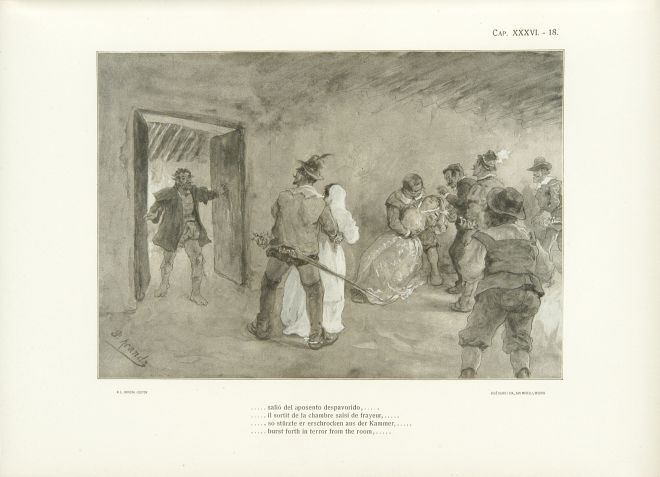
click to enlarge
After hearing a female cry, Cardenio comes out of the room and encounters Dorotea fainted (held by the barber and attended by the priest) and Luscinda grasped by don Fernando; also in the scene, Sancho and two of don Fernando's companions.
Remarkable figures, with good gestures.
Well-resolved scene with a great sense of drama and tension.
Great interest in representing real Spanish characters and accurate period clothes.
Jiménez Aranda's drawing skill is masterly; remarkable use of light and shadow with impressionist effects.
2 - "Esta nueva novela episódica […] no dió al pintor realista tan buenos motivos como la novela principal; pero supo tratar con elegancia los caballeros, dar misterio á la tapada, vida á la escena de apearse los viajeros y retirar los mozos las caballerías, y movimiento á la acción dramática. Tres dibujos nos impresionaron en ésta: es uno el que representa á Dorotea, vencida por el llanto, á los pies de Luscinda; es otro el momento de exclamar el caballero entre las dos mujeres, ¡Venciste, Dorotea!, y el tercero la efusiva escena en que Dorotea, aún arrodillada, abraza á su amante por las rodillas" (José Ramón Mélida: “Don José Jiménez Aranda y su "Quijote"", vol. I TEXTO, pp. L-LI).